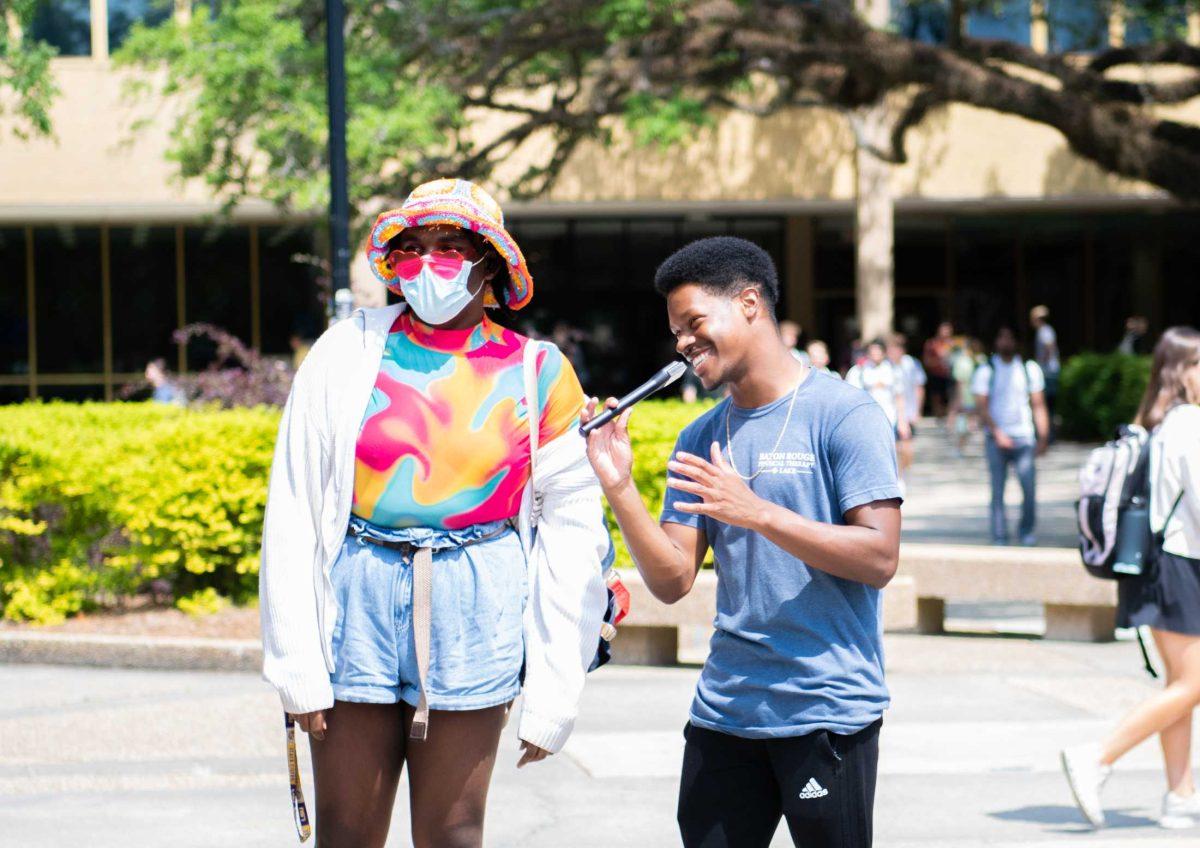I’m sure you’ve seen the popular videos of LSU students sharing their thoughts and opinions about an array of topics in short interviews with TikTok hotshot Seth Trotter, but the videos with the most engagement reflect a concerning issue: toxicity, especially as it relates to relationships.
If you watch even one Quad interview video, you’ll be startled by some of the interviewees’ responses. Before I get deep into this topic, I’d like to acknowledge the possibility that some of the students featured in these videos share fictitious experiences or simply say things that they know would warrant a reaction out of the audience.
Regardless of their validity, the fact of the matter remains; toxicity is a social epidemic.
Some of the commonly asked questions in these videos are: “What’s something toxic that you like?” And, “What’s the most toxic thing you’ve done?” Both questions received responses that would make you clutch your pearls if you heard them.
I mean, who would’ve thought that being choked, having daddy issues, always having to share your location as if you’re a child, aggressiveness, being yelled at and even being manipulative were likable qualities or traits that someone would be attracted to?
It’s important to understand that those answers are signs of trauma in one’s upbringing. This is why there’s a part of me that feels some form of empathy for these people. However, I can also acknowledge that there’s no overarching justification.
This leads me to my follow-up questions: Why is toxicity praised? Why do some of us find this kind of content so entertaining? Why not plan a collective field trip to a therapist’s office?
For many people who’ve been traumatized, it’s so easy to become comfortable with suffering since it’s all we know. So often we confuse love with pain. We think we have to sacrifice ourselves to be deserving of affection or peace.
Others of us believe that you can’t have love until you’ve suffered. Both perspectives are ridden with misconceptions about what love is. This being paired with people’s need to get attention makes for an awful combination and gives birth to what we see on different social media platforms: hurt and broken people whose inner children are crying out for help.
This is how we should approach interviews like the ones that Trotter produces. We should see each interviewee as someone who’s blinded by the pain and trauma inflicted on them at some point in their lives.
As a collective, we should be producing more content promoting healing rather than celebrating trauma responses. Now, Trotter’s videos didn’t necessarily receive lots of positive reactions, but if you pay attention to the viewers who are a part of Gen Z, they were the main ones to find relatability with the interviewees.
Social media isn’t inherently bad and neither are the students who were featured in those videos. Normalizing toxicity is bad. Bonding over trauma is bad. Being deliberately toxic is bad. It’d be more ethical to have support groups so that people don’t get trapped in the currents of trauma.
Just because we’ve been hurt doesn’t mean that we have to let it dictate our lives.
Amyri Jones is a 22-year-old digital advertising and religious studies senior from Baton Rouge.





